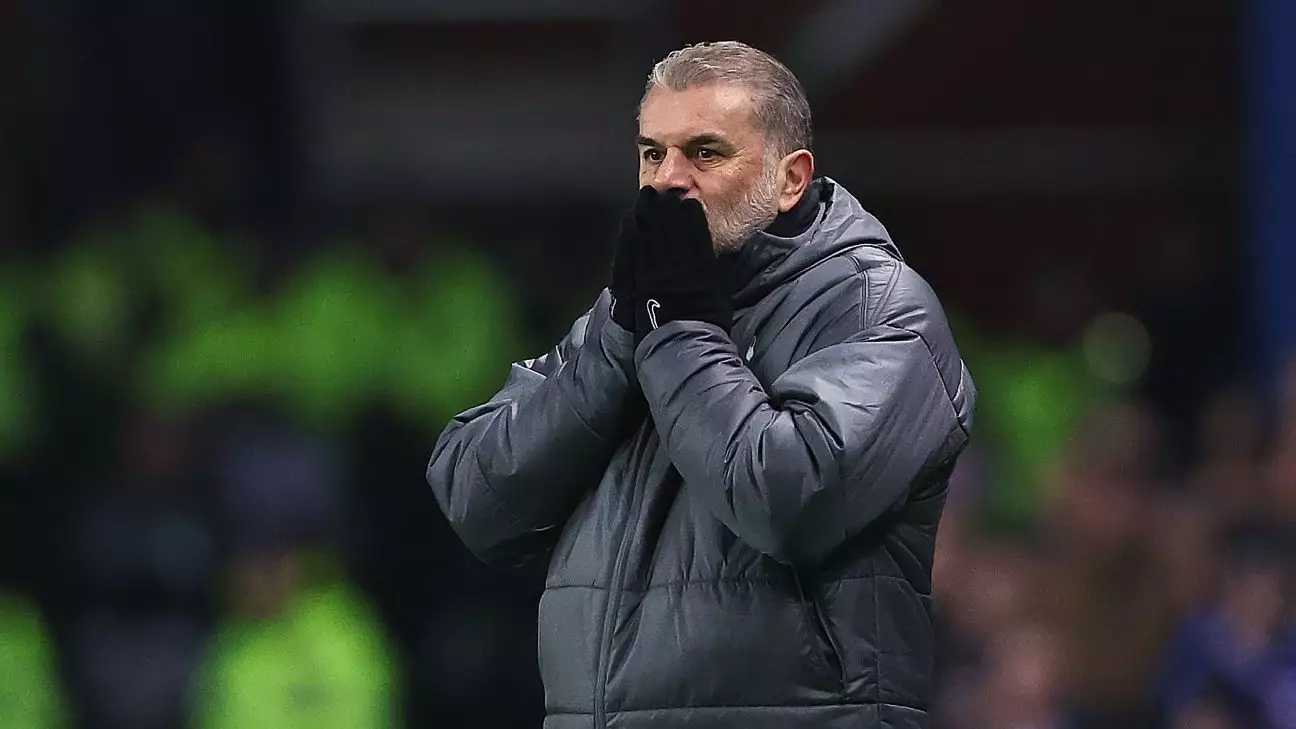The world of football management is a unique and often unforgiving environment. Managers like Tottenham Hotspur’s Ange Postecoglou embody the struggles and sacrifices that come with the role. In recent comments, Postecoglou painted a stark picture of the challenges faced by football managers in today’s professional landscape. His insights reveal a deeper commentary on the dehumanization that often accompanies the job, raising important questions about respect and compassion in a profession marked by ruthless scrutiny.
The recent dismissals of managers Russell Martin and Gary O’Neil underline a troubling trend within football: the increasing frequency and lack of empathy surrounding managerial sackings. Martin’s abrupt firing shortly after his team’s 5-0 loss to Spurs highlights a culture that disregards the personal toll these decisions can take on individuals and their families. Postecoglou’s reflections on the mindset that prioritizes swift action over humane treatment resonate widely.
The football industry has seemingly adopted a ‘win or go home’ mentality that leaves little room for patience or understanding. This phenomenon raises serious questions about how managerial roles are perceived and valued within the broader context of professional sports. It is easy for clubs, fans, and media alike to forget that behind every decision are human beings with families and livelihoods. The quick turnover of managers suggests not only a lack of commitment to long-term strategies but also an alarming detachment from the human aspect of the game.
Postecoglou’s assertion that management in football is a particularly grueling occupation resonates with those familiar with high-stakes professional environments. The constant pressure to perform can lead to significant mental and emotional strain. Unlike many occupations where decision-making might happen within a longer timeframe, football managers live with the reality of weekly evaluations of their performance. This week-to-week scrutiny transforms victories into fleeting moments of relief, while defeats can spell catastrophic consequences.
The comparison Postecoglou made between football management and political office is particularly telling. While politicians may face electoral challenges every few years, managers have to reckon with the judgment of fans, clubs, and media every single weekend. The stakes are high, and the pressure is relentless. For many managers, the toll of this lifestyle can lead to burnout and increased mental health challenges, creating an urgent need to re-evaluate how society perceives and treats sports leadership.
In an era where quick results often overshadow long-term development, Postecoglou’s call for a more compassionate approach to management decisions becomes increasingly relevant. Society has grown accustomed to celebrating success while easily casting aside failures, leaving little room for empathy. This detached perspective not only harms those directly involved, such as managers, players, and their families, but also jeopardizes the integrity of the sport itself.
The football community must confront the way it conducts its business. For clubs to thrive in the long run, they must recognize and value the hard work and dedication of their managerial staff. Creating an environment that allows for growth, even in the face of adversity, is essential for both the wellbeing of those in charge and the success of the teams they lead.
Ange Postecoglou’s criticisms signal a need for a paradigm shift in how managerial roles are regarded within football. The industry must prioritize human dignity and respect, making space for understanding and support. As the game evolves, so too must the approach to those tasked with leading teams.
If changes are not made, the cycle of dehumanization will continue, perpetuating an environment where individuals are reduced to mere statistics and results. The broader football community must heed Postecoglou’s message: a more compassionate landscape in football management is not just desirable, it is essential for the sport’s future.
